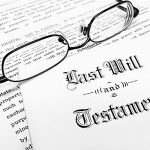Perhaps you have parents who are becoming sick or older in age. Perhaps you are questioning whether your parents have the appropriate safeguards in place to protect their interests. Now, you are an avid SW&L blog reader and have already become an expert on guardianships. Nonetheless, you were watching the news recently and noticed a story or two about something called a power of attorney. You are curious if this could be a better option for your parents than a guardianship. Let’s find out.
What Is A Power Of Attorney?
Following the above example let’s assume your mother’s name is Susan Elder. Susan is becoming ill. A power of attorney will allow Susan to choose who will make decisions on her behalf. With a power of attorney, Susan will decide exactly how much and what types of power to give to her attorney-in-fact. This means Susan could limit the power to solely address issues such as her banking needs, paying bills or taking care of her home. Susan could also make the power of attorney so broad that it virtually covers every issue she could come across, including who will become her guardian should a guardianship be necessary. A power of attorney allows Susan to grant and revoke powers to whomever she chooses so long as she is able to still make decisions on her behalf. If a durable power of attorney is set up and Susan later becomes too ill to make her own decisions, the power of attorney will remain valid. As a final note, a power of attorney is very inexpensive to create.
The Limitations Of Power Of Attorney
I am sure it is starting to sound like a power of attorney can in all things replace a guardianship. Unfortunately, this is not the case. With a power of attorney, you are acting as an agent for Susan. This means you must always act in the best interest of Susan. So far, it does not seem any different than a guardianship, right? The largest limitation is that Susan is not allowed to create a power of attorney once she has lost her ability to make decisions for herself. In this regard think of guardianship as what happens if Susan never had a power of attorney, but needs one after she has lost her ability to make her own decisions. Also, an attorney-in-fact in many states would not be allowed to file a restraining order or restrict visitation on Susan’s behalf. You may ask why a restraining order would be necessary. The sad truth is as people get more and more vulnerable, the opportunity for elder abuse rises, and the need for a restraining order can arise. Finally, a power of attorney has no oversight by the courts. Guardianships, on the other hand, require at least annual reporting to the courts. The lack of court involvement may seem like a benefit, but keep in mind the extra steps involved in using the court system are designed to protect the vulnerable adult.
The Benefits And Drawbacks Of A Guardianship
First and foremost, a full guardianship allows the guardian to make all the necessary decisions, which are legal to make, on behalf of Susan. Contrast this with the power of attorney powers which are only the powers Susan chose to include. Next, a guardianship gives a level of transparency to the decisions made by the guardian. What this means is that a guardian of Susan will have to answer to the court and provide documentation of his or her decisions. Another benefit is that anyone can request to become a guardian. This allows the court, as a neutral party, to decide who would be the best guardian for Susan. Finally, a guardianship only lasts for five years, so the court will revisit whether the guardian is still the right person for the job and whether a guardianship is still necessary. (Note: a guardianship can be renewed at the end of the five years). One thing to keep in mind is that guardianships can be expensive.
If You Can’t Beat Them, Join Them
Why not be prepared to have both a durable power of attorney and a guardianship for Susan? While Susan is still able to make her own decisions, create a power of attorney in which Susan can outline the powers she wants to share with you currently. Susan can also create a power of attorney describing the powers you will have in the event she lacks the ability to make her own decisions. Finally, Susan can create a power of attorney naming a guardian should one become necessary. With a well-drafted power of attorney, you can incorporate both current and future issues. The result will be Susan’s peace of mind in knowing exactly what is going to happen in the years ahead.
This blog is for educational purposes only. While we try to provide as broad a discussion as possible, the opinions here may not be right for every situation. We highly encourage you to seek legal representation for any guardianship or estate planning issue you may have. If you are seeking power of attorney, guardianship, contesting a guardianship, or have questions concerning the guardian’s ongoing duties, call or email our Estate Planning Team at 701-297-2890 or send us an email below.










